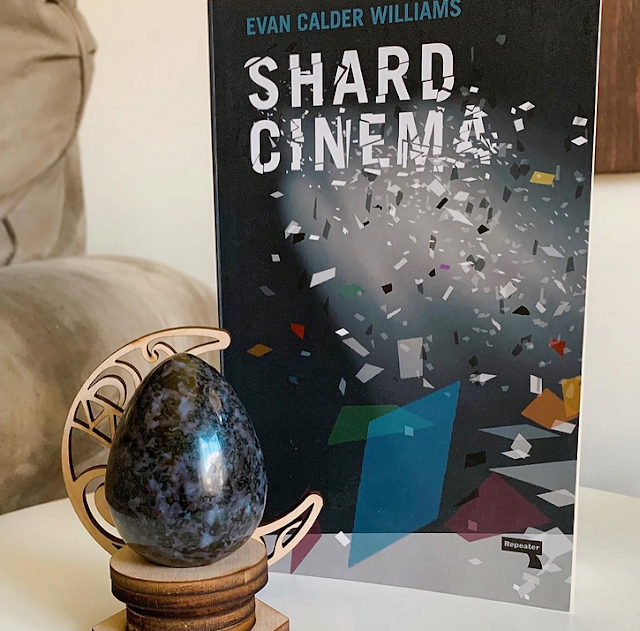"Shard Cinema" by Evan Calder Williams (published 2017)
Most of the films he cites are blockbusters that had/have the monetary heft to show their audiences a kind of shattered imaging (it takes a whole lot of money to digitally produce the effect). Interestingly, it seems Williams understands these moments of gradual breakdown - the shift of perspective from "landscape" (or cityscape, etc.) to a sharpening of a busted abstraction within it that falls in many tiny pieces - as a placement of time completely at a remove from dialogue (if any, and if there is a narrator, s/he seems to be muted).
How does this work reflect on his oeuvre? It comes back down to the apocalyptic. The imaging of the shattered (whether organic or technological) can be seen (at least in my interpretation) as a mode of looking that comments on that which has been neglected by the domineering camera's lens since time immemorial. The pause in time that signifies a moment of pure presence... perhaps...
I'd reccomend Shard Cinema to anyone who enjoys watching movies. The trajectory of the text is wide in scope and covers the technical development of the camera's perspective. Particularly interesting are Williams' thoughts on the moment cinema began to manipulate the visual narrative by being able to splice time, as a magician would, to create "scenes" on either side of the camera; that of the management and operation of an execution and that of the staged and filmed execution itself. Not surprisingly, Williams' is gracious enough to share his musings (in his own way, and he does this throughout the book) on how these two sides are at a juxtaposition - i.e. the awkward jesting of the film crew vs. the grave omniscience of the scene they're producing. Honestly, that is one of the reasons why I love reading Williams' work, that is, to find the message beyond the subject, to delve into the idiosyncratic themes (such as the evolution of the camera's perspective, noting when the lens is interested or uninterested, policing or just observing, violent or unbelievably tender) so to be able to better view this place as one we can inhabit rather than one we can only perceive.




Comments
Post a Comment